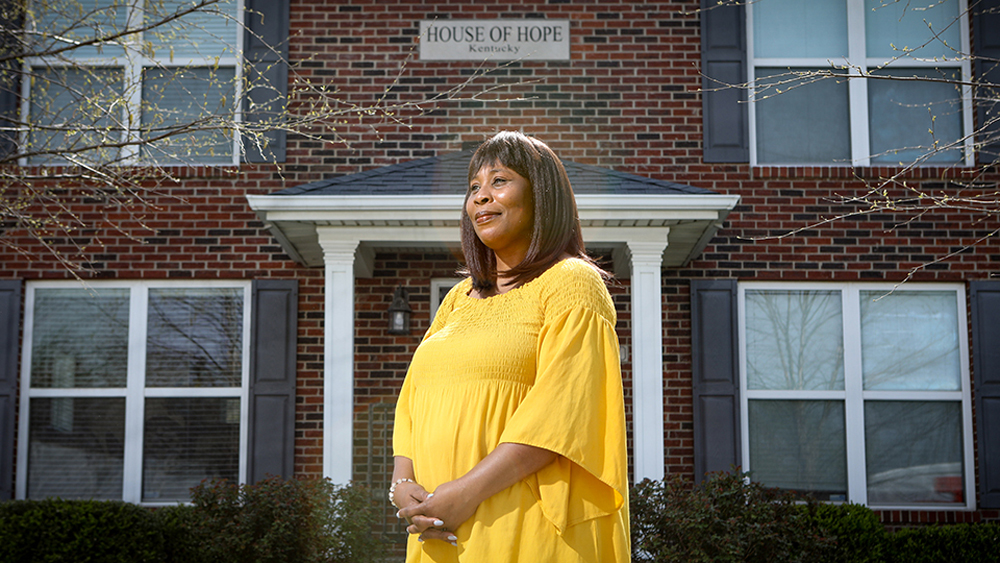When talking about House of Hope, a halfway home for single homeless women recovering from addiction, Tangy Hunter-Hughes uses the word “we.” Example: “We have eight women right now in the house.” But the “we” is really just her, just Tangy Hunter-Hughes. She’s CEO, property manager, caseworker, house mom.
Located in the California neighborhood in west Louisville, House of Hope is a two-story, eight-bedroom, eight-bathroom brick home for women who’ve completed a formal drug-treatment program. Women typically stay about two years, and during that time they pay a nominal rent, attend support meetings, get a job, complete house chores and, if successful, transition to a drug-free life. This is personal. Hunter-Hughes started smoking marijuana at 14 years old, not far from House of Hope, having grown up in the neighborhood, even looping her bike around where House of Hope would later stand. “My uncle gave me my first joint,” she says. In her 30s, Hunter-Hughes says she was handed a joint laced with crack cocaine. “And that’s what nailed me to the ground,” she says. Hunter-Hughes, who was raised by her great-grandmother, describes her upbringing as deeply Christian, and a moral compass fastened in at an early age. “So when I started having thoughts about stealing to get high,” she says, “I knew I was in trouble.”
In the depths of it all, she made a pact: God, help me; I’ll help others. Twelve years ago, after decades in the finance department of a hospice provider, and with the help of some money from the Office of Housing and Community Development, she opened House of Hope. (The project has since expanded and includes neighboring sober-only apartments and townhouses for graduates of the program.) About 100 women have passed through House of Hope. She estimates about half leave before completion; that is disappointing but understandable — she has felt addiction’s grip.
While many women at House of Hope are technically without kids, many are mothers who’ve lost custody of their children. About 25 years ago, Hunter-Hughes, now 58, handed her children (then in elementary and middle school) to their father when she went into recovery. Her daughter developed a fierce resentment toward Hunter-Hughes during the absence. “I always tell the women that when they come in here,” she says. “What (your children) need to see is you sober, you being productive. You really have to let them have time. But I also always tell them no one can replace their mother.”
Photos of one of the first women enrolled at House of Hope hang above Hunter-Hughes’ desk at the rear of the home. The woman left the program to return to her ex-husband in Georgia and started using drugs again. On a steamy summer day, she wound up unconscious in her car and died of heatstroke. Hunter-Hughes retreated into grief and doubt. “After a couple of days of lying around, a woman called me,” Hunter-Hughes recalls. “She said, ‘I’m just so tired. I need a place to go.’ And that’s what got me up.”
This originally appeared in the May 2019 issue of Louisville Magazine as the Portrait. To subscribe to Louisville Magazine, click here. To find us on newsstands, click here.
Photo by Jessica Ebelhar, jessicaebelhar.com


